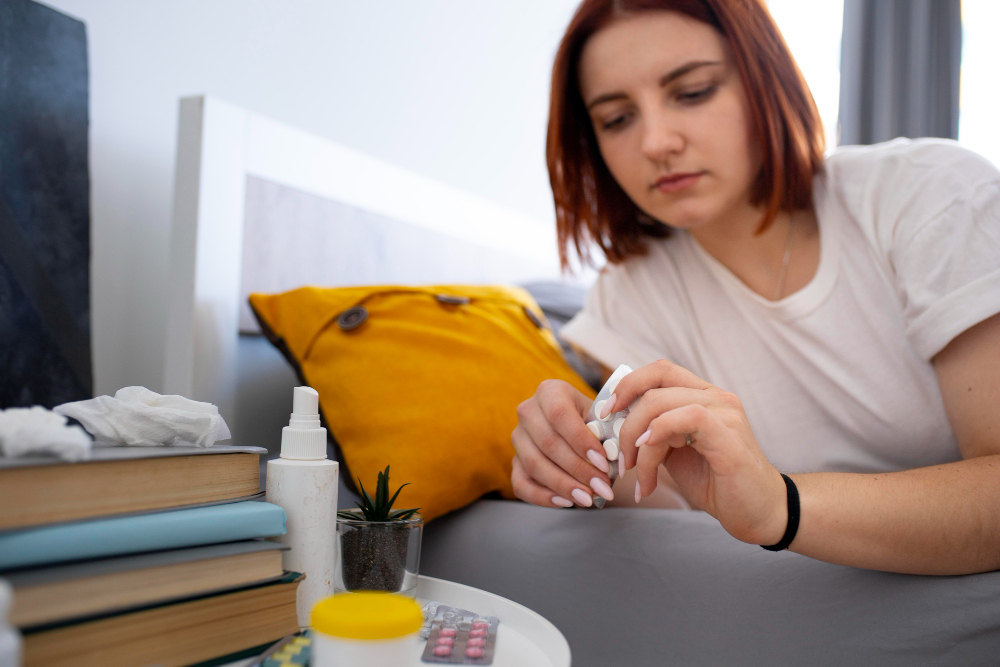“As a practitioner who has been in the field of Traditional Chinese Medicine for over 45 years, I’ve witnessed firsthand how neuropathy can be eased and rejuvenated by acupuncture in Manhattan, NY. Everyone’s journey is individual, yet in my opinion, combining ancient healing principles with modern knowledge can re-balance and make people comfortable.”
Neuropathy, or peripheral neuropathy, is a disorder that happens in nerves outside the brain and spinal cord. Peripheral neuropathy produces a range of uncomfortable symptoms, from burning, a prickly feeling, and numbness, as well as muscle weakness in the feet and hands. The symptoms in most patients are remarkably debilitating, and everyday activities, as mundane as walking or manipulating objects, are rendered difficult.
Although traditional therapies like medication, physical therapy, and lifestyle changes are most often applied in treating neuropathy, an increasing number of patients are considering acupuncture for neuropathy as a complementary therapy. Acupuncture, a form of traditional Chinese medicine (TCM), requires the insertion of fine needles into specific body points in order to stimulate restoration and enhance the flow of energy.
Here, we’ll look at neuropathy and how acupuncture could be beneficial, its advantages, how it’s administered, and how it differs from traditional therapy.
What Is Neuropathy?
Neuropathy is a peripheral nerve injury or peripheral nerve dysfunction, and it links the brain and the spinal cord with the rest of the body and transmits information. Peripheral neuropathy is one of the most common varieties of neuropathy, and it happens in the hands and in the foot.
Causes of Neuropathy
- Diabetes: High blood levels can hurt nerves in the long run.
- Chemotherapy or medications: Certain medications can cause neurotoxicity.
- Injury or trauma: Nerve injury directly caused by trauma is a cause of neuropathic symptoms.
- Autoimmune diseases: Diseases such as lupus or rheumatoid arthritis can lead to inflammation in nerves.
Common Symptoms
- Numbness or tingling in the extremities
- Severe shooting or burning pain
- Muscle weakness
- Light touch sensitivity
- Lack of balance or coordination
The symptoms vary in intensity and usually intensify during the night, and sleep as well as overall well-being are affected.
How Acupuncture Works
Acupuncture is a key component of traditional Chinese medicine and has been used for thousands of years to address various health concerns. The practice involves inserting thin, sterile needles into specific points along the body’s meridians—pathways believed to carry energy, or “qi.”
Effect on Nerve Functioning
Existing evidence indicates that acupuncture may potentially:
- Enhance repair and regrowth of nerves
- Encourage circulation in affected regions
- Decrease inflammation and oxidative stress
Specifically for neuropathy, acupuncture can be helpful in modulating pain transmission and enhancing circulation in the affected nerves, and thereby lessening symptoms such as burning, tingling, and numbness.
Scientific Evidence
Other clinical research has examined the efficacy of acupuncture in neuropathic pain. In a paper in the Journal of Pain Research, it was noted that acupuncture patients showed less pain and greater nerve function compared to patients who were only provided with routine care.
Ongoing research via these findings provides the potential application of acupuncture as an adjuvant therapy in neuropathy.
Advantages of Treating Neuropathy with Acupuncture
Acupuncture is increasingly noted as a method that could complement traditional neuropathy therapy. Some possible advantages are:
Pain Management
- Acupuncture decreases nerve pain by inducing the release of the brain’s own pain-blocking chemicals, such as endorphins.
- Patients typically report a reduction in burning, tingling, and numbness in a few sessions.
Enhanced Circulation
- Through increased circulation in the affected areas, acupuncture is able to nourish over-stretched nerves and assist in repair.
- Enhanced circulation can also assist in relieving swelling and pain.
Improved Standard of Living
- Weekly or every-other-week acupuncture treatments may improve sleep quality, reduce fatigue, and improve overall well-being.
- They generally enjoy more convenience and greater flexibility in day-to-day activities.
What to Expect During Treatment?
Familiarity with what happens in a session can remove fear and deliver on practical expectations.
Business Session Format
- The session lasts typically 30–60 minutes.
- The acupuncturist will question you, take a history, and select particular points on which to insert needles.
- Thin, clean needles are pierced in strategic points in order to access affected nerves and meridians.
Number of Sessions
- Neuropathy symptoms usually need several sessions before improvement occurs.
- They usually attend 1–2 times a week over a few weeks.
Side Effects and Safety
- Acupuncture is generally safe if performed by a licensed acupuncturist.
- Minor side effects include mild soreness, tired feeling, or bruising after the treatment.
Acupuncture or Standard Therapy?
Acupuncture can complement, but not replace, traditional neuropathy treatments. Here’s how it compares:
- Medications: Pain medicines or nerve-regulating medication could control symptoms, but could trigger dizziness, nausea, or sleepiness as a secondary effect.
- Physical Therapy: Increases strength and range of motion, but cannot immediately remove nerve pain.
- Acupuncture: Provides a drug-free method that potentially can increase circulation, decrease suffering, and invoke overall well-being. Acupuncture is often used in combination with mainstream therapy as a holistic method of treating neuropathy.
Many patients combine acupuncture with conventional care for a holistic approach to managing neuropathy.
How to Find a Competent Acupuncturist
To obtain maximum benefit from acupuncture in neuropathy, look for licensed and certified professionals who are trained in neuropathy treatment. Ask them about their technique, frequency of sessions, and desired outcome. Good hygiene and the employment of a sterile needle for protection.
Conclusion
Acupuncture offers a promising complementary approach for managing neuropathy symptoms. While more research is needed, studies and patient reports suggest it may help reduce pain, improve circulation, and enhance overall quality of life.
If you’re considering acupuncture for neuropathy, consult with a licensed acupuncturist to discuss your individual needs and treatment plan.
Disclaimer: Acupuncture is a complementary therapy and should not replace medical advice or conventional treatment. Always consult your healthcare provider before starting any new therapy.
At Olympus Center, we specialize in acupuncture in Manhattan, NY, offering personalized treatments that help reduce stress, ease pain, and support whole-body healing.


